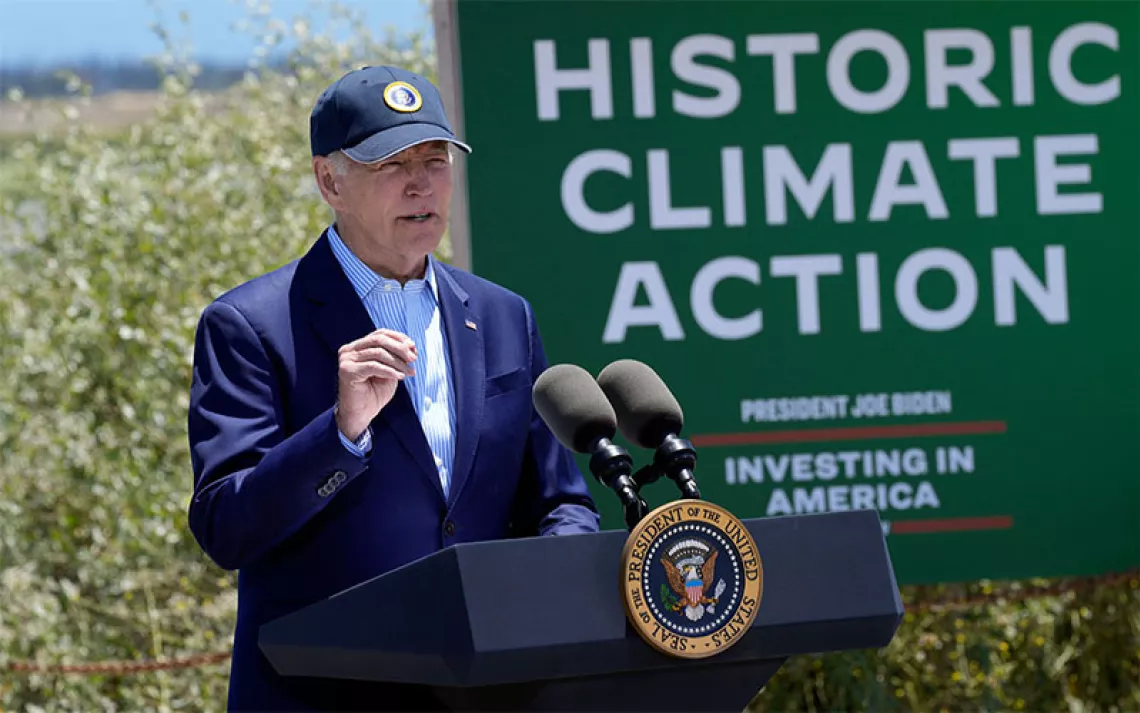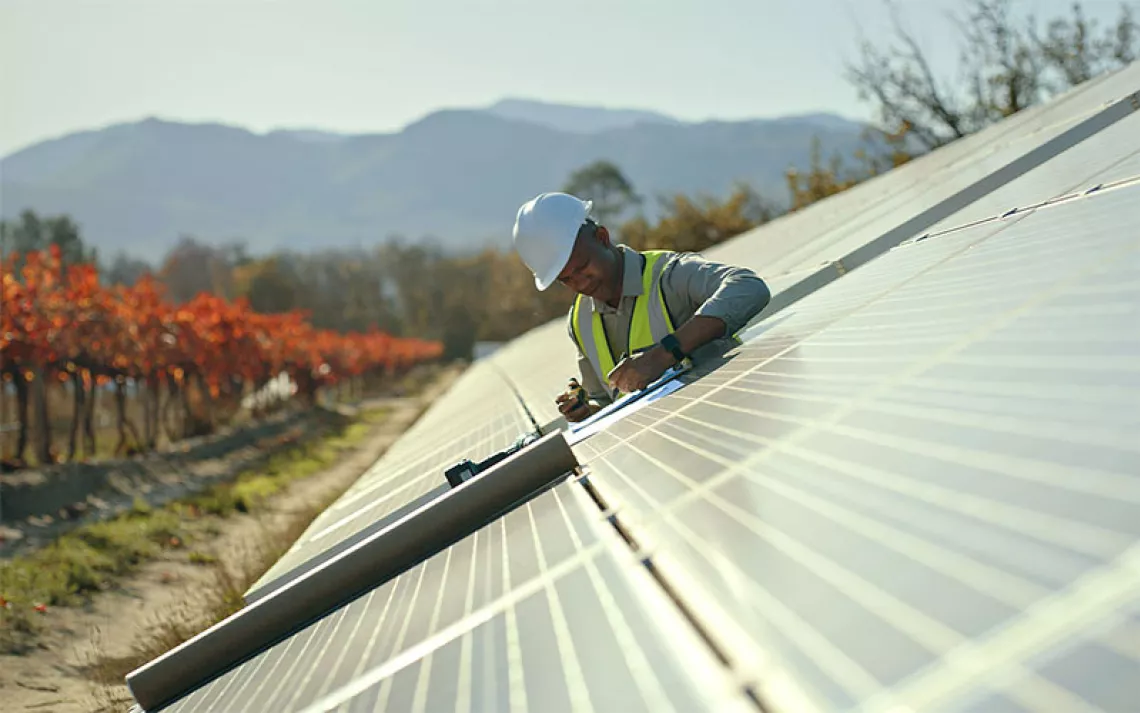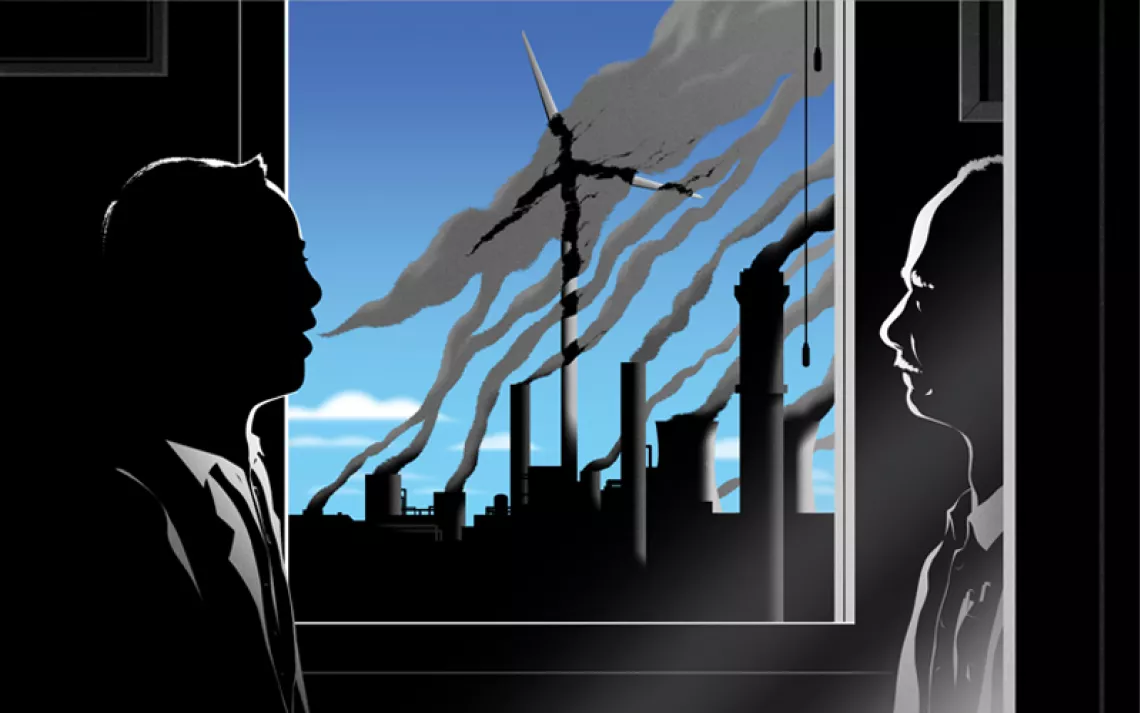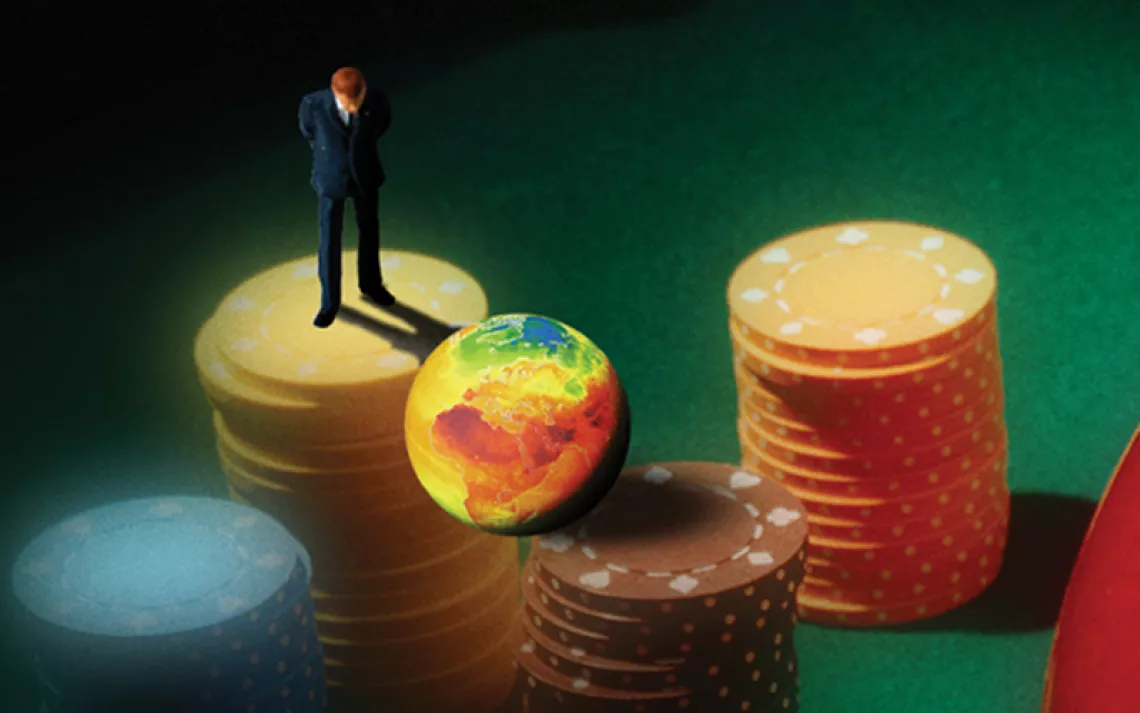Can We Have Our Clean Energy and the Environment Too?
Developing the minerals and metals for the clean energy economy will come with trade-offs
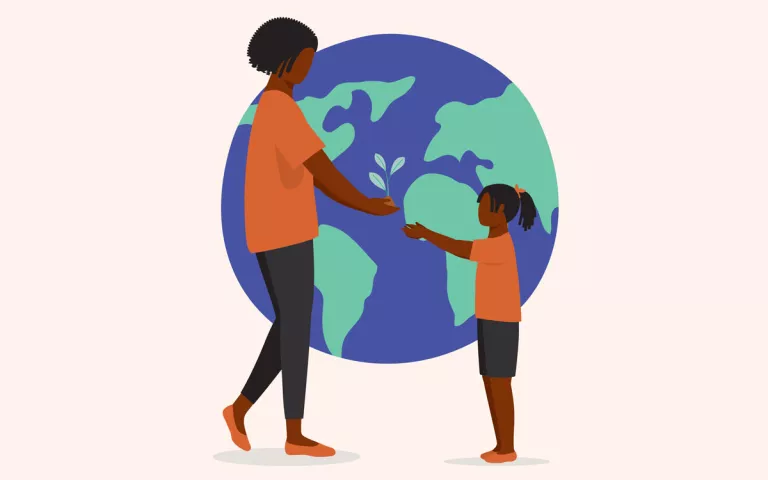
Illustration by iStock/simplehappyart
For far too long, political and corporate leaders have resisted creating effective policies to address climate change. In 1985, when famed astronomer Carl Sagan warned Congress about the dangers posed by human-caused global warming, politicians listened politely but did nothing. Since then, oil companies and utilities have spent years and millions of dollars sowing disinformation and doubt about climate science. Fossil fuel industry propaganda kneecapped the political system's sense of urgency.
Now there's no more time to waste. With carbon dioxide emissions continuing to rise and the 10 hottest years on record all happening within the past two decades, the need for climate action has never been greater. The passage last summer of the Inflation Reduction Act is an important first step. The law marks the beginning of the era of decarbonization. As the price of renewable energy continues to drop, the horizon is filled with opportunities. With those opportunities come new challenges: Perhaps most pressing, how can we phase out fossil fuels without harming the communities—both human and more-than-human—that have already disproportionately suffered from the fossil fuel economy? These conundrums complicate our efforts to build a society fueled by clean energy and anchored in justice.
The race for the metals needed to power electric vehicles is one clear example. Electric car sales in the United States increased by 85 percent between 2020 and 2021. The resource extraction required to get the lithium needed to power those EVs, however, can have a lasting impact. As Vince Beiser reports in "A Clean Energy Conundrum," Chile's Atacama Desert is one of the largest sources of lithium in the world. But lithium extraction also harms the region's fragile ecosystems—especially the freshwater lagoons that play a key role in the local communities. Indigenous people in the Atacama are trying to hold the multinational corporations accountable for the impacts of lithium mining. It remains unclear whether the mining corporations can develop a form of extraction that can safeguard Indigenous communities and the environment.
A similar push-and-pull is illustrated in J.B. MacKinnon's investigation of the environmental and human costs of fast fashion ("The Price Is Wrong"). The clothing industry as it exists today is unsustainable. In one Bangladeshi city, the demand for water to supply clothing factories is so great that the water table has dropped some 200 feet. As MacKinnon reports, a mere $1 increase in the sale price of many garments would be enough to pay workers a living wage and also reduce some of the environmental costs of this wasteful industry. Yet apparel companies are unwilling to increase the retail prices of their clothes.
Here in the United States, wildland firefighters are spending increasing amounts of time away from their families and often suffer low wages, as Vance Jacobs and Daliah Singer report in "On the Line." The 10 biggest wildfire years in the US have all been in the 21st century, and they've taken a toll on firefighters. These fire crews, like the Bangladeshi garment workers and Chilean Indigenous communities, carry a disproportionately large burden in dealing with a crisis they did not cause.
We need to acknowledge that in dealing with climate change, the trade-offs often lead to negative consequences for communities that weren't involved in the decision of what would be traded away. How do we carry out the clean energy transition without making the mistakes of the past? Studied ambiguity is no longer an option. We can't afford the high social and environmental costs of cheap goods, cheap labor, and disposable ecosystems. This much is clear: There's no time left to trade away either justice or sustainability.
 The Magazine of The Sierra Club
The Magazine of The Sierra Club
